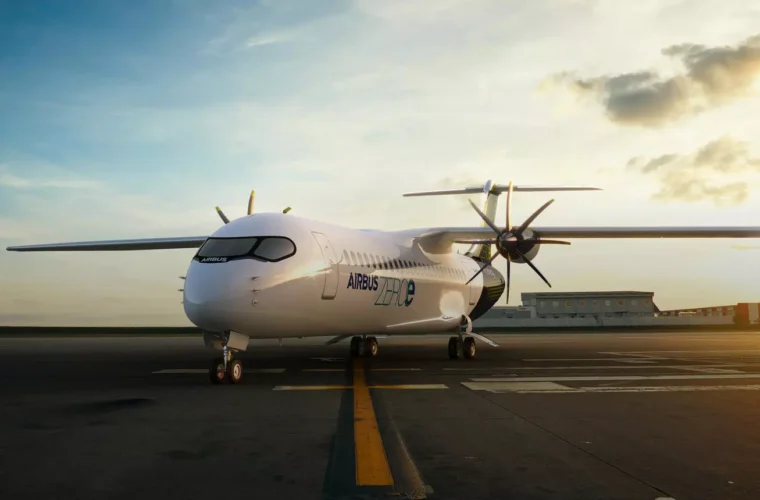The aerospace manufacturer Boeing recently announced plans to produce airplanes capable of running on 100% biofuel. This is the latest development in a series of moves by major companies aimed at greening up the sector.
But can fuel-guzzling commercial flight truly become sustainable?
Green aviation
After decades of harmful industrial practices, society is refocusing its priorities. Sustainability is the new mantra. With commercial flights effectively suspended, at least at the scale to which we were once accustomed — the pandemic offers an opportunity for some soul-searching.
The global aviation industry produces around 2% of all human-caused carbon dioxide (CO2) emissions. The entirety of the transport sector produces around a quarter of humanity’s carbon footprint, with flight representing around 12% of that share.
When compared with road transport, which accounts for three quarters of all transport emissions, flight does not appear so problematic. However, air miles are worse than any other mode of transport in terms of carbon efficiency, and the industry — until very recently — has been riding a fierce upward growth trend.
Boeing, among other large companies, set itself the challenge of drastically reducing its CO2 emissions. The aviation sector more broadly aims to cut emissions in half by 2050.
“Our industry and customers are committed to addressing climate change, and sustainable aviation fuels are the safest and most measurable solution to reduce aviation carbon emissions in the coming decades,” says Boeing’s commercial airplanes president and CEO, Stan Deal.
The company is committed to working with regulators, engine companies and other key stakeholders to ensure its airplanes and eventually the wider industry can fly entirely on sustainable jet fuels, Deal says.
One major advantage of Boeing’s strategy, beyond the clear sustainability gains, is the plug-and-play nature of the solution.
“We are putting this emphasis on sustainable fuels because we believe this is the most-feasible way to reach our ambitions,” says Boeing’s director of sustainability strategy Sean Newsum — “We need to make [sure] that jet fuel, in that 2050 timeframe, is as sustainable as possible.”
While sustainable aviation fuels can be made from many different sources — biomatter, waste, corn, sugar — they function just like regular fuel in a combustion engine. This makes any potential transition far less complex than the alternatives, as fuelling systems, engines, and planes themselves, have little need for engineering fixes.
“Low-cost, sustainable fuel options are critical for the future of the aviation sector,” according to Jimmy Samartzis, chief executive of LanzaJet, the company that recently signed a deal with UK carrier British Airways to supply it with sustainable aviation fuels.

Future sustainable flight
Just as natural gas has a role to play in easing the energy sector transition, sustainable aviation fuels look set to play a crucial intermediary role for the aerospace industry.
But they might not ultimate be the energy source of choice for propulsion technology in the future, according to certain industry players.
Val Miftakhov, CEO of sustainable aviation company ZeroAvia, believes the answer is hydrogen-powered electric planes.
“We actually looked early on at different ways to bring sustainability to aviation. Hydrogen electric is the most efficient and likely to be the lowest cost out of all [options],” Miftakhov says.
The company has produced a prototype sustainable aircraft, the biggest currently flying through hydrogen power. The hydrogen is used in the plane to run an electric motor, which in turn operates the propellers. The only outputs of the process are the desired energy, and water as a by-product — with zero carbon emissions.
“There is absolutely opportunity for companies like us to change the world here,” Miftakhov says.

The European manufacturer Airbus has also voiced plans to produce a fleet of concept hydrogen-powered planes within the next 15 years.
“At Airbus, we strongly believe renewable energy needs to power future aviation. And hydrogen is potentially the best pathway through which to do so,” says Glenn Llewellyn, Airbus’s vice-president of zero-emission aircraft.
As the energy sector continues its transition towards sustainable energy sources, the cost of hydrogen could significantly decline over the next decade, Llewellyn says.
The aerospace giant will not be satisfied with merely putting a hydrogen-powered aircraft into the air. The company is pursuing wide-scale adoption which requires hydrogen power infrastructure to expand.
“We believe airports should already start using hydrogen to decarbonise their ground transportation ecosystem, thereby enabling hydrogen to scale up at airports in preparation for future hydrogen aircraft by the mid-2030s,” Llewellyn says.



